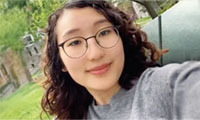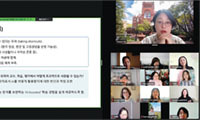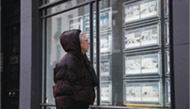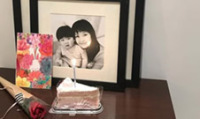In New York’s toughest neighborhoods, gay residents say, it is possible to live openly much of the time ? and then to suddenly pay . The recent torture of three men thought to be gay has shaken the city, especially in the Bronx, the borough with some of the city’s most violent crime, where the attack took place.
“There is a constant threat of violence that we live with,” said Charles Rice-Gonzalez, 46, a writer and gay rights advocate who has been working in the South Bronx for two decades. “I was horrified, disgusted and angered by the attacks.
I wouldn’t say I was surprised or shocked.” Since the arrests of 11 gang members in the assaults (three have since been released), Mr. Rice-Gonzalez and Arthur Aviles, founders of the Bronx Academy of Arts and Dance, have begun planning a self-defense class . Keith Mitchell, a 24-year-old gay man who said he can be himself in his neighborhood because people there watched him grow up, is taking care when straying beyond its borders.
He has been beaten up himself, he said, and the recent attacks are never far from his mind. “That could have been me,” he said. “You never know when someone is going to turn on you.” In many respects, gay people in poor neighborhoods face the same challenges and threats as other gay New Yorkers.
The Department of Education reported 862 incidents of harassment based on sexual orientation in the 2008-9 school year. More than 40 percent of the 1,700 homeless youths in the Safe Horizon Streetwork Project, a citywide victims’ assistance program, identify themselves as gay or transgender.
But in dozens of interviews, gay and lesbian residents said it could be especially difficult to be gay in the Bronx, given the macho street culture, the local gang codes and the storefront churches that call homosexuality a sin.
The Bronx does have its public gay life. Some bars sponsor gay nights , but the scene is scattered, without the security that an enclave like Chelsea or the West Village, both in Manhattan, provides.
When Mr. Rice-Gonzalez was growing up in the 1970s and ‘80s, there were few gay organizations, making for “a very clear sense of isolation,” he said. “There was no way for gay men to meet each other unless you ran into someone downtown,” said Mr. Rice-Gonzalez, whose theater serves as a gathering place for gays. Today, several groups in the neighborhood offer gay people services and counseling.
Harassment and even violence against gays are not uncommon, but the October 3 attacks in the Bronx have struck a nerve because of their brutality and extent - 11 suspects; 4 victims; and a 20-hour rampage involving cigarette burns, sodomy and beatings with baseball bats. Ruben Porras, 29, who grew up near where the attacks took place and said he knew some of the men who were arrested, offered an explanation. He said the men, who belonged to a gang, were not overtly hostile to gays. He compared the gang to a father who tolerated gay people ? as long as they were not in his family.
“People will embrace it so long as it’s not someone they are claiming as their own,” he said. The trouble began, the authorities said, after one gang member saw a 30-year-old man, who was suspected of being gay, with a 17-year-old who wanted to join the group. Gang members assumed the men had slept together; they punished them, another teenager and the older man’s brother.
Morris Heights, where the attacks occurred, is a tight-knit community where neighbors know one another. Old men stand in bars discussing the day’s headlines. A 29-year-old mother stood outside a bodega recently .
She said she was horrified by the violence, but acknowledged that gay people made her uncomfortable. “It’s hard for me to handle,” said the woman, who declined to give her name for fear of gang reprisals. “It’s something that’s not normal.” In neighborhoods where gangs are common, some churches preach tolerance. But several gay residents said a growing number of congregations made them feel attacked from two sides.
“I feel assaulted every weekend because of the hate speech from sidewalk preachers,” Mr. Rice-Gonzalez said. “They say gay people need to repent, they’re going to hell.” New York has long been a refuge for gay people. But recent events, like an assault on a gay man in Greenwich Village, followed by the Bronx attacks, have left many people dismayed.
“If this is the oasis in our country,” said Eliza Byard, executive director of the Gay, Lesbian and Straight Education Network, “it doesn’t feel that great right now.”
스마터리빙
more [ 건강]
[ 건강]이제 혈관 건강도 챙기자!
[현대해운]우리 눈에 보이지 않기 때문에 혈관 건강을 챙기는 것은 결코 쉽지 않은데요. 여러분은 혈관 건강을 유지하기 위해 어떤 노력을 하시나요?
 [ 건강]
[ 건강]내 몸이 건강해지는 과일궁합
 [ 라이프]
[ 라이프]벌레야 물럿거라! 천연 해충제 만들기
 [ 건강]
[ 건강]혈압 낮추는데 좋은 식품
[현대해운]혈관 건강은 주로 노화가 진행되면서 지켜야 할 문제라고 인식되어 왔습니다. 최근 생활 패턴과 식생활의 변화로 혈관의 노화 진행이 빨라지고
사람·사람들
more많이 본 기사
- 남가주 전역에 ‘물폭탄’… 성탄 연휴 ‘대혼란’
- [2025년 한 해 ‘진 별’들] 미주 한인사회 원로들 ‘역사의 뒤안길’로
- 체포 불체자 수만명 물류창고에 수감 추진
- 여성 살해·자녀 납치 한인 ‘수배’
- “소변 불편한데 주저하다 방광 망가져”
- 한인타운 한복판 주유소서 강도 ‘칼부림’
- ‘라스베가스에서 만난 한인들’
- 크리스마스 연휴 음주운전 ‘꼼짝마’
- 우크라이나도 “Merry Christmas!”… 지구촌 성탄 축하
- 새해 더 건강해지기 위한 의사의 과학적 조언 10가지
- 시애틀 주택시장 내년 거래 회복될 듯...거래는 회복되겠지만 가격은 ‘정체’될 것으로 예상돼
- 서태지, 딸·엘리와 1년 만에 근황 “좋은 소식 없어 안타까워”
- 난방기 뜯자 ‘비밀공간’ 은신 마피아 보스 체포
- “대학 학자금 상환 안하면 임금 압류한다”
- 한인 박찬영씨 총격살해범은 백인 군인...살해범 “박씨 차량이 끼어들어 시비가 붙어 결국 총쐈다”
- 선우용여 “아들, 돈 없어 개밥 먹기도..아파트 마련해줬다”
- H-1B ‘10만 달러 수수료’ 연방법원, 이의소송 기각
- 한국외대·연세대·한양대 GCEO 연합골프대회 성황
- 북한인, 아마존 위장취업 대거 적발
- CBS가 보류한 ‘불법체류자 추방’ 보도, 캐나다서 원본 유출
- 테슬라, “비상사태 시 차문 안 열려”
- 최준희, 엄마 故최진실 생일 맞아 추억 “우리 마미 축하”
- 우크라, 20개항 종전안 최신판 공개…영토 할양은 ‘미해결’
- 서유리, ♥법조계 남친 데이트 신청에 두근.. “돈은 내가 낸다”
- 팔레스타인서 구금된 한인 여성 무사 귀환
- LA 마약조직 집중 단속 갱단원 등 수백명 체포
- 중산층이 집을 사지 않는다?… 챗GPT가 내다본 주택시장 미래
- 피클볼이 바꾸는 부동산의 얼굴
- 원·달러 환율, 당국 개입에 42원 폭락
- 국방부 “中, 美 안보 위협할 군사력 보유…본토 갈수록 취약”
- 조지아 역주행 사고, 한인 남편 이어 임신 아내·태아 사망
- 백악관, 군에 “베네수엘라 원유 격리하라” 총력 지시
- [성탄절 앞둔 우울한 경제상황] ‘내 코가 석자’… 기부 급감
- [스티브 강 ‘인사이드 미국’] 2026 중간선거: 트럼프 지지율 하락이 말해주는 것
- 트럼프, 李대통령에 ‘백악관 황금열쇠’ 선물… “최고의 협력관계”
- 트럼프 ‘전쟁할 결심’?… 미군 특수부대 카리브해 이동
- ‘16kg 감량’ 홍현희, 다이어트 비결 뭐길래..날렵해진 턱 라인
- ‘이정후 위엄’ SF CEO+사장+단장+감독→韓 총출동! 황재균·윌리 아다메스까지 선행 참여
- 로비 단서 혹은 과대포장?…3천쪽 통일교 내부문건 살펴보니
- 산타 한반도 다녀가셨네…성탄절 밤하늘 제주-서울 돌고 평양행
- [유혜미 칼럼] 치솟는 환율, 경제 지표의 역설
- 역주행 승용차 덮쳐 한인 등 2명 사망
- 바야흐로 ‘귀금속 시대’… 금·은·구리까지 사상 최고
- “평신도 시각에서 본 선교 준비 실제와 영적 묵상”
- 시택공항서 “내 이름이 뭔가요” 캠페인...가짜 차량공유 범죄 예방 위해 캠페인 시행키로
- 한화 “필리조선소서 미군 핵잠 건조하기 위한 준비 착수”
- 팀 쿡 애플 CEO, 나이키 주식 43억원어치 매입…나이키 주가↑
- “트럼프특사, 벨라루스 정상과의 협상수단으로 살빼는약 동원”
- 뚜레쥬르, 뉴욕시 맨해튼 매장 오픈
- 뉴욕증시, 성탄절 앞두고 상승 마감…S&P500 연일 사상최고치
1/5지식톡

-
 미 육군 사관학교 West Poin…
0
미 육군 사관학교 West Poin…
0https://youtu.be/SxD8cEhNV6Q연락처:wpkapca@gmail.comJohn Choi: 714-716-6414West Point 합격증을 받으셨나요?미 육군사관학교 West Point 학부모 모…
-
 ☝️해외에서도 가능한 한국어 선생님…
0
☝️해외에서도 가능한 한국어 선생님…
0이 영상 하나면 충분합니다!♥️상담신청문의♥️☝️ 문의 폭주로 '선착순 상담'만 진행합니다.☎️ : 02-6213-9094✨카카오톡ID : @GOODEDU77 (@골뱅이 꼭 붙여주셔야합니다…
-
 테슬라 자동차 시트커버 장착
0
테슬라 자동차 시트커버 장착
0테슬라 시트커버, 사놓고 아직 못 씌우셨죠?장착이 생각보다 쉽지 않습니다.20년 경력 전문가에게 맡기세요 — 깔끔하고 딱 맞게 장착해드립니다!장착비용:앞좌석: $40뒷좌석: $60앞·뒷좌석 …
-
 식당용 부탄가스
0
식당용 부탄가스
0식당용 부탄가스 홀세일 합니다 로스앤젤레스 다운타운 픽업 가능 안녕 하세요?강아지 & 고양이 모든 애완동물 / 반려동물 식품 & 모든 애완동물/반려동물 관련 제품들 전문적으로 홀세일/취급하는 회사 입니다 100% …
-
 ACSL 국제 컴퓨터 과학 대회, …
0
ACSL 국제 컴퓨터 과학 대회, …
0웹사이트 : www.eduspot.co.kr 카카오톡 상담하기 : https://pf.kakao.com/_BEQWxb블로그 : https://blog.naver.com/eduspotmain안녕하세요, 에듀스팟입니다…
케이타운 1번가
오피니언
 스티브 강 전 한인민주당협회 회장
스티브 강 전 한인민주당협회 회장 [스티브 강 ‘인사이드 미국’] 2026 중간선거: 트럼프 지지율 하락이 말해주는 것
 김홍일 케이유니콘인베스트먼트 대표
김홍일 케이유니콘인베스트먼트 대표 [기고] 안정의 기준은 어떻게 제도가 되었나
 유혜미 한양대 경제금융대학 교수
유혜미 한양대 경제금융대학 교수 [유혜미 칼럼] 치솟는 환율, 경제 지표의 역설
 성민희 소설·수필가
성민희 소설·수필가 [윌셔에서] 우리 안의 ‘생각하는 사람’을 깨울 시간
 김정곤 / 서울경제 논설위원
김정곤 / 서울경제 논설위원 [만화경] 해수부 부산시대

[왈가 왈부] 내란재판부·정통망법 또 수정… 졸속·땜질 아닌가요
 정숙희 논설위원
정숙희 논설위원온라인쇼핑과 반품, 그리고 그 이후
 파리드 자카리아 / 워싱턴포스트 칼럼니스트 / CNN ‘GPS’ 호스트
파리드 자카리아 / 워싱턴포스트 칼럼니스트 / CNN ‘GPS’ 호스트 트럼프의 새 독트린 “미국을 다시 왜소하게”
 김동찬 시민참여센터 대표
김동찬 시민참여센터 대표 [미국은 지금] MAGA의 분열, 예견된 균열의 시작
1/3지사별 뉴스

“온 세상에 평화를⋯”
숨가쁘게 달려온 2025년을 이제 1주일 남짓 남긴 채 크리스마스 이브를 맞는다. 다사다난했던 한 해를 되돌아보며 마무리하는 연말 시즌과 크리…
H-1B비자 고임금·경력자에 우선권

‘올해는 ICE 이민자 체포 광풍의 해’
올 한해동안 버지니아와 메릴랜드, DC 등에서 연방 이민당국에 체포된 사람이 1만명이 훌쩍 넘는 것으로 조사됐다. 또 미 전국적으로는 22만명…
“ATM기 사용하기 겁나네”

한인들 위한 무료 법률 상담회 개최
샌프란시스코 베이지역 한인회(회장 김한일)는 지난 20일 한인회관에서 북가주 지역 한인들을 위한 무료 법률 상담회를 개최했다. 이날 행사에는 …
여성 살해·자녀 납치 한인 ‘수배’

오늘 하루 이 창 열지 않음 닫기 





















































.png)


댓글 안에 당신의 성숙함도 담아 주세요.
'오늘의 한마디'는 기사에 대하여 자신의 생각을 말하고 남의 생각을 들으며 서로 다양한 의견을 나누는 공간입니다. 그러나 간혹 불건전한 내용을 올리시는 분들이 계셔서 건전한 인터넷문화 정착을 위해 아래와 같은 운영원칙을 적용합니다.
자체 모니터링을 통해 아래에 해당하는 내용이 포함된 댓글이 발견되면 예고없이 삭제 조치를 하겠습니다.
불건전한 댓글을 올리거나, 이름에 비속어 및 상대방의 불쾌감을 주는 단어를 사용, 유명인 또는 특정 일반인을 사칭하는 경우 이용에 대한 차단 제재를 받을 수 있습니다. 차단될 경우, 일주일간 댓글을 달수 없게 됩니다.
명예훼손, 개인정보 유출, 욕설 등 법률에 위반되는 댓글은 관계 법령에 의거 민형사상 처벌을 받을 수 있으니 이용에 주의를 부탁드립니다.
Close
x